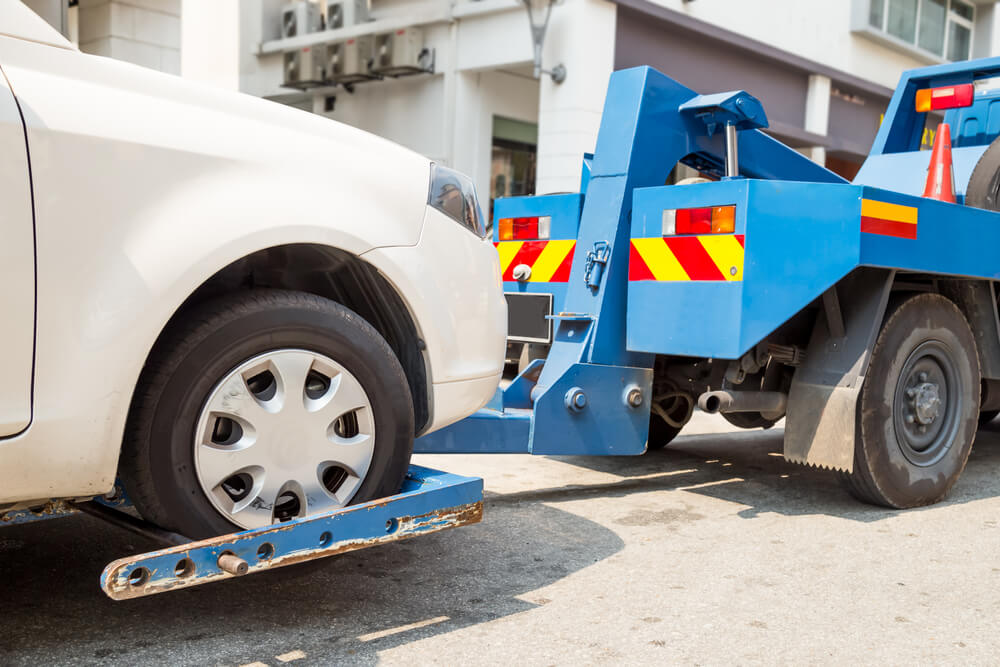If you’re in the towing industry, you’re going to need specific towing insurance to protect your vehicles. Insuring a tow truck isn’t quite the same as insuring a car or a semi-truck. There are some important coverages that will protect you from the risks that come along with towing. Yes, getting insurance for a tow truck might seem tricky, but we’ll break down six common coverages for tow trucks and wreckers.
What towing insurance do I need to tow cars?
1. Auto liability insurance.
Auto liability insurance will protect you if you’re in a car accident by covering your legal financial obligation to the other driver. You could be responsible for covering a lot of expenses if you’re at fault.
- Bodily injury liability will cover the other driver’s medical expenses and lost wages if they’re injured in an accident you caused. It can also help you with legal expenses if you’re sued.
- Property damage liability will cover the costs of repairing or replacing the other driver’s car (or other property you damage) if you’re at fault in an accident.
2. Physical damage insurance.
Physical damage insurance will help you get your tow truck back on the road ASAP by covering the cost of the repairs or replacement if it gets damaged.
There are two main segments of physical damage insurance.
- Collision insurance will repair or replace your tow truck if you’re in an accident.
- Comprehensive insurance will replace or repair your truck if it’s damaged by something other than an accident, such as a fire, vandalism, lightning, an animal strike, or a falling object (like a tree.) It will also cover you if your tow truck is stolen.
Liability insurance will only pay to repair or replace the other driver’s car if you’re in an accident, not your tow truck. That’s why physical damage insurance is such an important coverage – it can help protect your investment in your tow trucks or wreckers.
3. On-hook/In-tow insurance.
(If you live in Virginia or Texas, this is called garagekeepers insurance.)
On-hook/in-tow insurance will cover you when you’re transporting or towing a client’s car. If something happened while the car is hooked up to your truck, you would be responsible. You may be required by your state’s law to carry a certain amount of on-hook towing insurance, so you need to check to see if this is the case in your state.
Here’s an example of on-hook insurance in action:
You’re towing a car to a mechanic’s shop. It’s raining and the roads are very slick. You accidentally go around a curve too fast and slide off the road and into a tree. Thankfully you’re not hurt, but the customer’s car has a lot of damage.
4. Garagekeepers insurance.
(If you live in Virginia or Texas, this is called storage location insurance.)
Garagekeepers insurance will cover your clients’ cars while you have them in your care, custody, and control (for example, if you ever keep your customers’ cars on your premises.) Garagekeepers usually covers losses like fire, vandalism, lightning, and theft. Since the car is in your care, you’re responsible for any mishaps that could befall it.
Check out this example of garagekeepers insurance in action:
It’s the middle of the night and you get a call about a broken-down car. The customer’s mechanic doesn’t open until morning, so you take the car back to your premises and store it on your lot for the night. But soon after you leave, a car thief steals it. The car is long gone by the time you return in the morning.
5. Garage liability insurance.
Garage liability insurance helps protect your business from liability that arises from the services you provide or your day-to-day operations. So, if the services you provide lead to bodily injury or property damage, you can be covered for your legal responsibility.
Keep in mind that you may want to consider including garage liability insurance in your towing insurance plan even if you don’t have a physical garage location. And this is why:
Imagine that you have a roadside assistance company. You go on a call to help someone change a tire. You change the tire and the driver thanks you and leaves. But a few miles down the road, the tire comes off their car and they get into an accident. You’re the one who changed the tire, so you could be found responsible.
6. Wrongful repo insurance.
If you’re doing repossessions, wrongful repo insurance is something you should consider when getting towing insurance. It can help cover you if you accidentally take a car that you’re not supposed to. There are a few ways that could happen:
- You don’t check with the bank after receiving the repo request and the driver has actually made their payment. (It can take some time for the request to get to you, and while it was on its way the person may have made their payment.)
- You take the wrong car. (Wait a minute, you mean this is the wrong white SUV? Oops.)
- You don’t have a written notice. A spoken or verbal request from the bank is not sufficient.
Yes, there are many, many different towing insurance coverages out there for tow trucks. Since every tow truck business is different, each business needs different coverages and limits. We can help you get the insurance you need to protect your business. All you have to do to get tow truck insurance quotes is fill out our quote form or give us a call.



